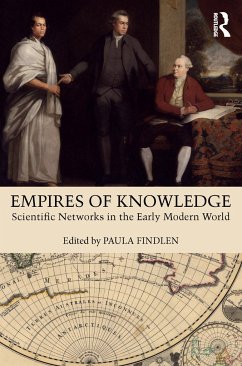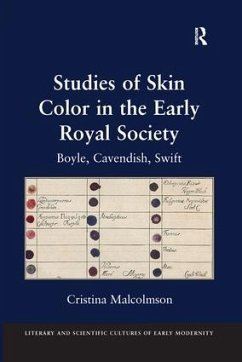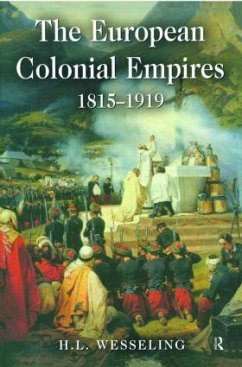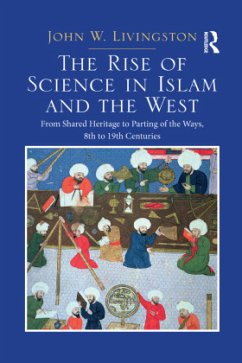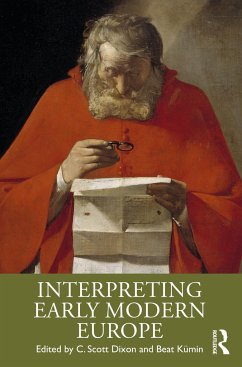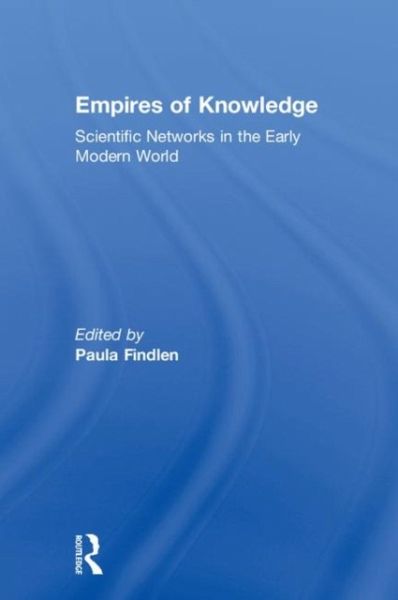
Empires of Knowledge
Scientific Networks in the Early Modern World
Herausgegeben: Findlen, Paula
Versandkostenfrei!
Versandfertig in 6-10 Tagen
176,99 €
inkl. MwSt.
Weitere Ausgaben:

PAYBACK Punkte
88 °P sammeln!
Empires of Knowledge charts the emergence of different kinds of scientific networks - local and long-distance, informal and institutional, religious and secular - as one of the important phenomena of the early modern world. It seeks to answer questions about what role these networks played in making knowledge, how information traveled, how it was transformed by travel, and who the brokers of this world were.Bringing together an international group of historians of science and medicine, this book looks at the changing relationship between knowledge and community in the early modern period throu...
Empires of Knowledge charts the emergence of different kinds of scientific networks - local and long-distance, informal and institutional, religious and secular - as one of the important phenomena of the early modern world. It seeks to answer questions about what role these networks played in making knowledge, how information traveled, how it was transformed by travel, and who the brokers of this world were.
Bringing together an international group of historians of science and medicine, this book looks at the changing relationship between knowledge and community in the early modern period through case studies connecting Europe, Asia, the Ottoman Empire, and the Americas. It explores a landscape of understanding (and misunderstanding) nature through examinations of well-known intelligencers such as overseas missions, trading companies, and empires while incorporating more recent scholarship on the many less prominent go-betweens, such as translators and local experts, which made these networks of knowledge vibrant and truly global institutions.
Empires of Knowledge is the perfect introduction to the global history of early modern science and medicine.
Bringing together an international group of historians of science and medicine, this book looks at the changing relationship between knowledge and community in the early modern period through case studies connecting Europe, Asia, the Ottoman Empire, and the Americas. It explores a landscape of understanding (and misunderstanding) nature through examinations of well-known intelligencers such as overseas missions, trading companies, and empires while incorporating more recent scholarship on the many less prominent go-betweens, such as translators and local experts, which made these networks of knowledge vibrant and truly global institutions.
Empires of Knowledge is the perfect introduction to the global history of early modern science and medicine.




